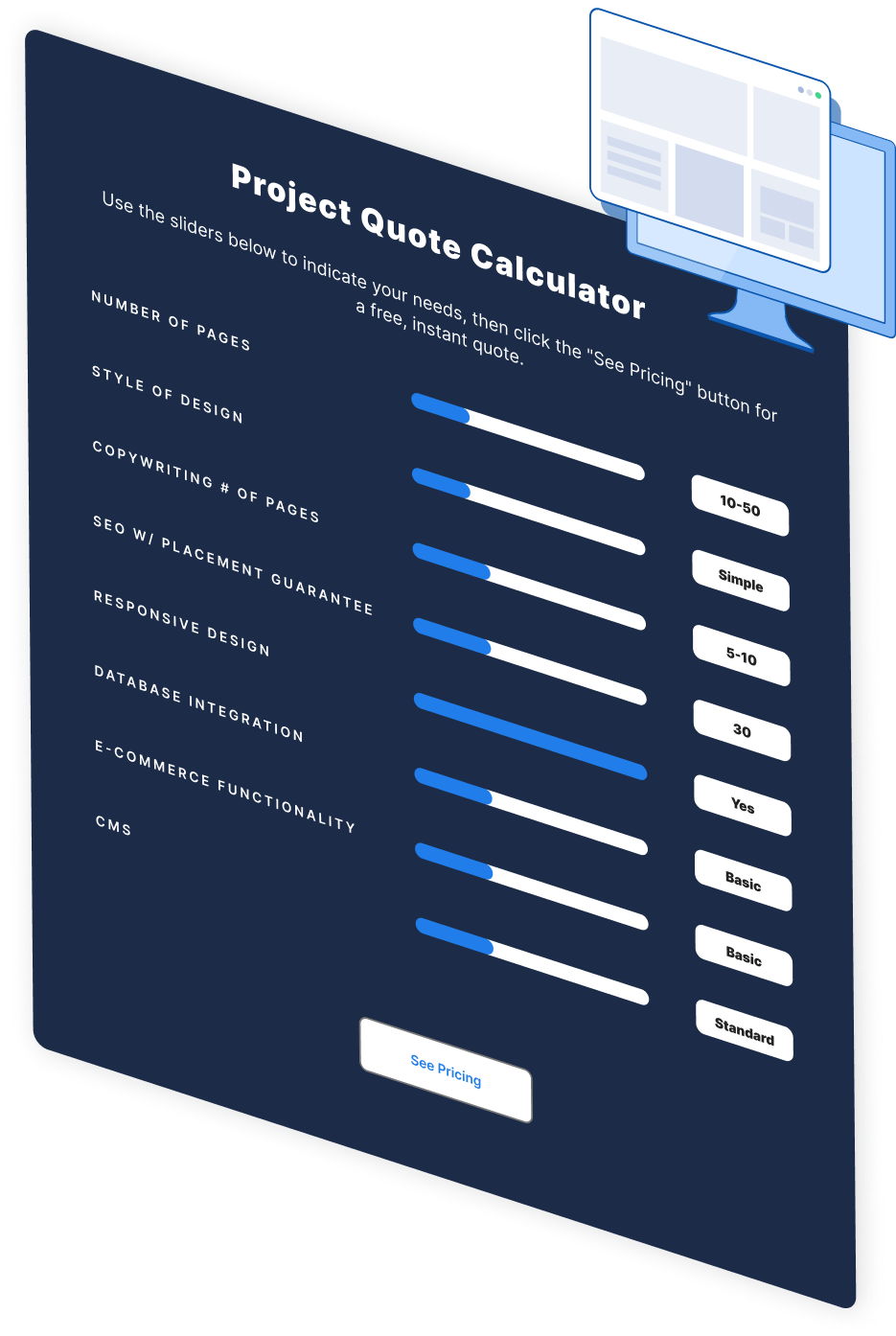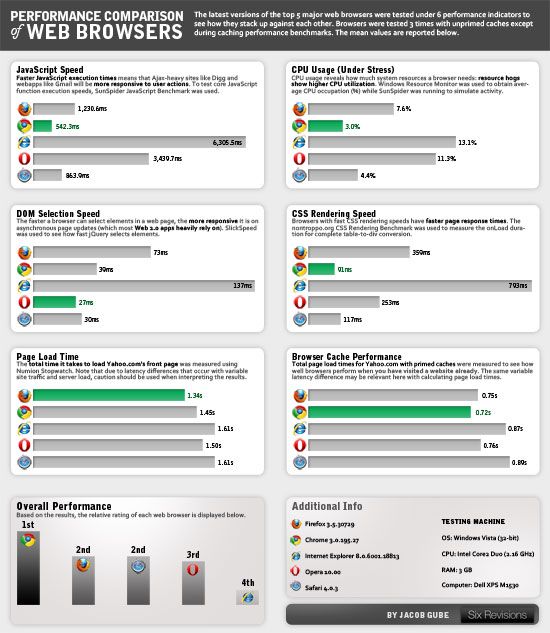- Home
- Blog
- Web Design Performance Comparison of Major Web Browsers
Performance Comparison of Major Web Browsers
-
 2 min. read
2 min. read
-
 William Craig
William Craig CEO & Co-Founder
CEO & Co-Founder
- President of WebFX. Bill has over 25 years of experience in the Internet marketing industry specializing in SEO, UX, information architecture, marketing automation and more. William’s background in scientific computing and education from Shippensburg and MIT provided the foundation for MarketingCloudFX and other key research and development projects at WebFX.
The latest versions of the five most major web browsers (Mozilla Firefox 3.5, Google Chrome 3.0, Microsoft Internet Explorer 8.0, Opera 10.0, and Apple Safari 4.0) went head to head under six performance indicators: JavaScript speed, average CPU usage under stress, DOM selection, CSS rendering speed, page load time, and browser cache performance. Each web browser was tested three times under an unprimed cache (except for the browser cache performance), and their average value reported in the results.
Click to enlarge:
Download the Data
If you’d like to download the raw data, you can grab them as a CSV below.
- web-browser-performance-data.csv (CSV, 2.0KB)
Benchmarking Tools
- SunSpider JavaScript Benchmark
- SlickSpeed (jQuery values reported)
- Numion stopwatch
- CSS Rendering Benchmark
- Resource Monitor
Acknowledgement: Thanks to Sean Hurley of 96Robots for inspiring this study.
Related Content
- The History of Web Browsers
- 10 Ways to Improve Your Web Page Performance
- Can You Be a Web Designer?
- Related categories: Resources and Tools
Real Advice
SEO is one of the most effective Internet marketing strategies you can adopt into your campaign, and WebFX is home to a whole team of SEO specialists. Check out some of the real advice we gave to auto parts retailers about SEO.
-
 President of WebFX. Bill has over 25 years of experience in the Internet marketing industry specializing in SEO, UX, information architecture, marketing automation and more. William’s background in scientific computing and education from Shippensburg and MIT provided the foundation for MarketingCloudFX and other key research and development projects at WebFX.
President of WebFX. Bill has over 25 years of experience in the Internet marketing industry specializing in SEO, UX, information architecture, marketing automation and more. William’s background in scientific computing and education from Shippensburg and MIT provided the foundation for MarketingCloudFX and other key research and development projects at WebFX. -

WebFX is a full-service marketing agency with 1,100+ client reviews and a 4.9-star rating on Clutch! Find out how our expert team and revenue-accelerating tech can drive results for you! Learn more
Make estimating web design costs easy
Website design costs can be tricky to nail down. Get an instant estimate for a custom web design with our free website design cost calculator!
Try Our Free Web Design Cost Calculator


Web Design Calculator
Use our free tool to get a free, instant quote in under 60 seconds.
View Web Design CalculatorMake estimating web design costs easy
Website design costs can be tricky to nail down. Get an instant estimate for a custom web design with our free website design cost calculator!
Try Our Free Web Design Cost Calculator






